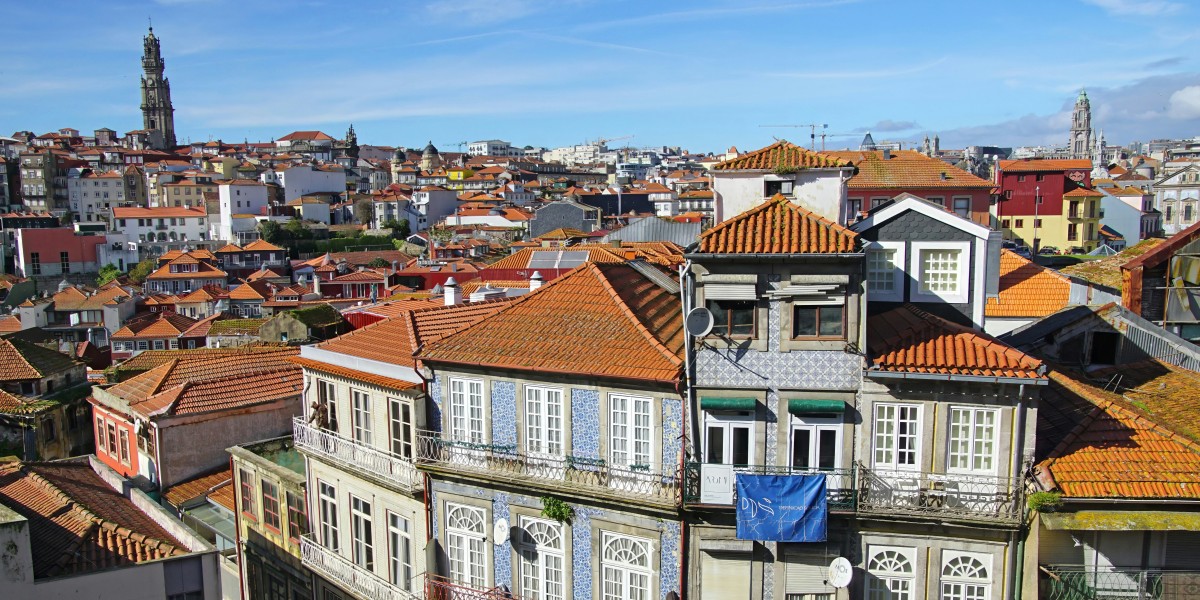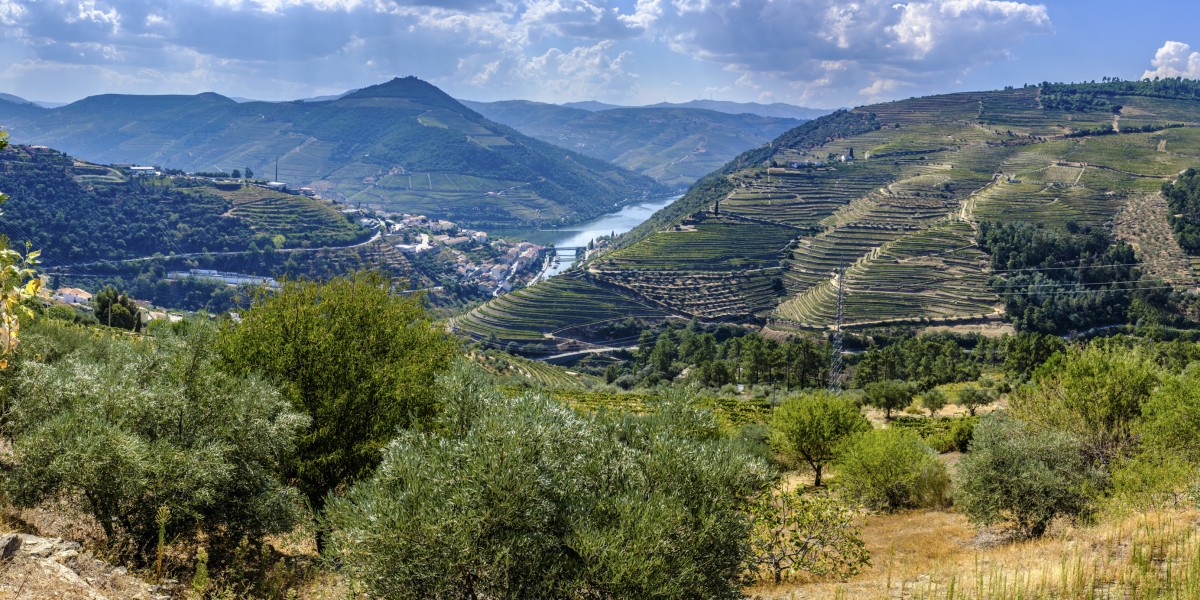
Remote work in Portugal has truly taken off in recent years, and it’s easy to see why so many people are choosing the country as their base. Since Portugal brought in the digital nomad and remote work visas, it’s become a bit of a hotspot for freelancers, tech folks, and anyone keen for a coastal change of scene.
The surge of remote workers in Portugal has brought a lively mix of fresh perspectives and global connections, revitalising coworking spaces and putting towns on the international map. However, it's important to note that this shift has also driven up property prices in some areas and changed the feel of local neighbourhoods, leaving many locals torn between the benefits of new opportunities and the challenges of a changing community.
Can you work remotely in Portugal?

Portugal has actively embraced remote work, making it one of Europe’s most appealing destinations for digital nomads and remote employees. If you’re from the EU or EEA, you have the right to live and work remotely in Portugal with minimal bureaucracy—just remember to register your residence after 90 days.
For non-EU nationals, such as those from the UK, USA or Canada, you’ll need to apply for a suitable visa. Portugal’s Digital Nomad Visa (also called the D8 Visa) is a popular choice, designed specifically for remote workers who earn a steady income from outside Portugal.
The process typically involves proof of sufficient income, valid health insurance, and documentation to show ongoing employment or freelance work with a company based outside Portugal. Requirements can shift, so it’s worth checking the latest updates before applying.
Pros and cons of working remotely in Portugal

Portugal has shot up the list for remote workers over the past few years, thanks to a mix of lifestyle perks and practical advantages. Still, it’s not all plain sailing—there are some trade-offs to keep in mind before making the leap.
Portuguese lifestyle perks for remote workers
- The relaxed pace of life means long lunches, friendly faces at your local café, and a genuine focus on work-life balance.
- Mild winters and long, sunny summers make it easy to get outdoors and enjoy life outside working hours.
- There’s a strong sense of community, even in bigger cities like Lisbon and Porto, so newcomers can settle in without too much hassle.
- English is widely spoken in most urban areas, and co-working spaces are both common and well-equipped.
- The cost of living is still affordable by Western European standards, with fresh food, public transport, and entertainment all reasonably priced, though this is starting to change in some hotspots.
Pitfalls of the digital nomad trend in Portugal
- The popularity of Portugal with remote workers and expats has led to noticeable rent increases, especially in Lisbon, Porto, and trendy beach towns.
- Bureaucracy can catch newcomers off guard and can be more involved than expected.
- In smaller towns or rural areas, English isn’t quite as common, and integrating into the local community can take a bit of extra patience and willingness to learn Portuguese.
- Public services (like healthcare or transport) can get overstretched in areas seeing rapid population growth from newcomers.
- Some locals have voiced concerns about the changing feel of neighbourhoods, as well as increased costs and competition for housing.
Practical tips for remote work success in Portugal

If you plan to be here for more than 183 days a year, you’re likely to be seen as a tax resident and must declare your worldwide income to the Portuguese tax authorities. For those who don’t hit that threshold, only income sourced in Portugal is usually taxed, but always check the latest rules for your particular situation.
Sorting your official paperwork early is crucial. Register for a Portuguese NIF (tax number) as soon as possible, as you’ll need it for almost everything—from opening a bank account to signing a rental contract. If you’re freelancing, you’ll usually have to register as a trabalhador independente and may need to declare VAT each quarter if your earnings exceed the threshold.
Health insurance is another key consideration. EU nationals often use their EHIC or GHIC cards temporarily, but most remote workers opt for private health insurance for longer stays to make sure they’re covered for all situations.
It pays to keep an eye on agreements between Portugal and your home country, especially double taxation treaties—these help avoid being taxed on the same income twice.
Finally, don’t overlook social security contributions and pension schemes if you’re planning to settle for the long haul. A bit of planning up front means you can focus your time soaking up the Portuguese good life rather than dealing with paperwork dramas.
Best places to live in Portugal for digital nomads

Portugal is packed with spots that work really well for digital nomads, each with its own flavour and pace of life. The best place in Portugal for digital nomads is constantly changing as prices increase in the bigger cities, and some search for quieter, less crowded areas.
Lisbon is the obvious frontrunner—there’s a huge international community, endless cafés and coworking spaces, loads of events, plus a genuine cosmopolitan buzz. If you’re after something slightly less hectic. Porto offers just the right mix of history, creative energy and a more manageable price tag, especially for longer stays.
For anyone keen on a slower pace or lower cost of living, Braga is increasingly popular among remote workers who prefer tradition, friendly locals and green spaces. Down south, the Algarve has a totally different feel: think beaches, surf, and a laid-back workday vibe, though coastal hotspots can get busy (and pricy) in peak season.
For a real change of scene, Madeira is earning its stripes with nomads thanks to stunning scenery and the island’s digital nomad village at Ponta do Sol. And don’t sleep on smaller cities like Aveiro or Coimbra, where you’ll find charm, affordable living and easy connections to Portugal’s bigger hubs.
Community and networking for digital nomads in Portugal
Finding your crowd in Portugal is refreshingly straightforward, especially if you base yourself in Lisbon, Porto, or the sunny pockets of the Algarve and Madeira. You'll find lots of coworking spaces that regularly host events, workshops, and laid-back socials. Also, keep an eye out for monthly meetups, language exchanges, tech talks, and even outdoor yoga sessions in city parks or by the sea.
For those living outside the major hubs, consider joining InterNations events or searching Meetup.com for specialised groups. Remote parenting circles, startup pitch nights, or weekend surf meetups are all popular themes. Many nomads mention that smaller towns like Lagos, Ericeira, and Braga are known for a real ‘pay it forward’ attitude—locals and expats are quick to share tips, introduce you to others, and help out newcomers, keeping the generous spirit alive in the community.
Internet, phone and tech essentials for nomads

Portugal has an excellent reputation when it comes to digital infrastructure. Fibre optic broadband (fibra) is common even outside the main cities. The main providers are MEO, NOS, and Vodafone—each offers prepaid or contract options, depending on whether you’re settling down or just passing through.
Mobile data is fast and affordable, with prepaid SIM cards available at the airport and most convenience stores. The main providers all offer solid coverage across the country, including the islands. For most nomads, a basic SIM gives plenty of data for work and navigation—you can top up online or at kiosks as you go.
Coworking hubs provide blazing-fast Wi-Fi and often throw in perks like Skype booths, printing, and, in some cases, equipment rentals. For tech issues, you’ll find repair shops in all bigger cities, and tech stores like Worten or FNAC carry the essentials.

